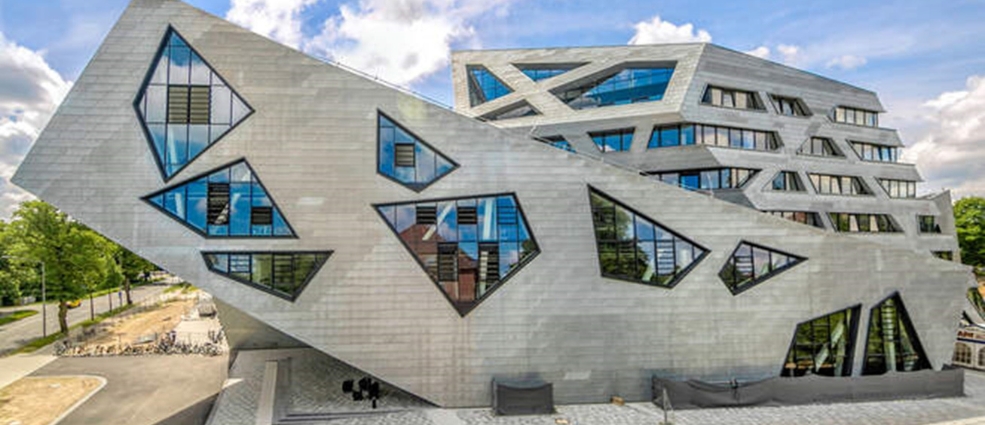Install this application on your home screen for quick and easy access when you’re on the go.
Just tap then “Add to Home Screen”

Leuphana University has been carbon neutral since 2014. It uses 100% green electricity, regenerative heat and has installed photovoltaic systems on ten buildings.
Located 40 miles south of Hamburg in the lively medieval Hanseatic city of Lüneburg, the University was founded in 1946 as a College of Education with the goal of creating a new democratic culture among the students (democratic re-education programme of the allies after WWII).
The University is institutionally designed as a foundation under public law which gives Leuphana a higher degree of administrative and organisational autonomy and responsibility than other German universities. Humanistic, sustainable, and entrepreneurial values guide the academic activities of Leuphana.
Furthermore, Leuphana University is also proud of having created suitable framework conditions for gender equality and diversity.
The campus of Leuphana serves as an inspiring hub for academic exchange. A milestone in the dynamic development of the campus is its central building which was designed by Daniel Libeskind and unveiled in 2017.
Over the past decades, the former college flourished into a full university which currently comprises five faculties:
Leuphana faculties offer a range of BA, MA, and PhD Programmes to around 10,000 students provided by the university's College, Graduate School, and Professional School.
As part of the School of Public Affairs, the Department of Political Science (DPS) is dedicated to consistently offering high-quality teaching courses for political science degree programmes. The DPS also promotes research projects as well as internationally visible publications across a broad range of topics.
Founded in 2004, The Center for the Study of Democracy (CSD) will celebrate its 20 years anniversary during the Joint Sessions. The Center has conducted research on democratic structures and procedures in politics and society, economics and the environment. Its main research questions are related to the legitimacy and performance of democracy in the 21st century.
The Center’s research activities focus on three areas: Value Change and Human Empowerment, Party Government and Institutional Change as well as Participation and Public Policy.
The CSD is also strongly engaged in the active promotion of younger researchers as well as in international and regional networking among research institutions in the field of democracy.